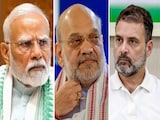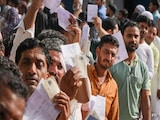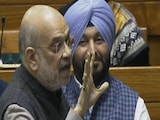- Akola in Maharashtra identified as fourth hub in Afghan-led fake passport racket
- Sohbat Khan, Afghan national, leads racket, arrested by Madhya Pradesh Anti Terrorism Squad
- Six arrests made, including Sohbat, his aides, and Afghan nationals from West Bengal
In a sensational twist to the recently busted inter-state fake passport racket, the communally sensitive city of Akola in eastern Maharashtra has emerged as the fourth major hub of an Afghan-led network operating across Madhya Pradesh, West Bengal, and Chhattisgarh.
The alleged kingpin, 30-year-old Afghan national Sohbat Khan, now in the custody of the Madhya Pradesh Anti-Terrorism Squad (ATS), has been spilling one bombshell after another during interrogation. According to sources, a religious place in Akola served as a covert meeting point for Afghans living illegally in India. It was here that Sohbat allegedly met Akbar and Iqbal, two Afghan nationals illegally residing in West Bengal, who had already managed to obtain Indian passports through this racket.
"When we made the first three arrests, our investigation was limited to Jabalpur (Madhya Pradesh), West Bengal, and Chhattisgarh. But Sohbat's interrogation revealed Akola's crucial role, bringing the communally sensitive city into the spotlight," a senior ATS officer said.
Before settling in Jabalpur in 2010, Sohbat had also lived in Nagpur and Akola. So far, six people have been arrested - the kingpin Sohbat Khan, his aide Dinesh Garg (a forest guard posted in the district collectorate's election cell), Chandan Thakur (who posed as a lawyer), and Mahendra Kumar Sukhdan from Jabalpur - along with Afghan nationals Akbar and Iqbal from West Bengal.
Investigations have revealed the pivotal role of Chandan Singh, who disguised himself as a lawyer to prepare fake documents. Wearing a black coat, he would enter government offices and handle the legal paperwork to push these fake applications through. ATS has arrested him as well.
According to the ATS, Sohbat first created a fake residential proof and birth certificate showing him as a permanent resident of Jabalpur, Madhya Pradesh's cultural and judicial capital. Using these forged documents, he obtained a driving licence, and in 2020, an Indian passport, followed by Aadhaar, PAN, and voter ID cards.
With aides Garg, Sukhdan, and Thakur, Sohbat began replicating this modus operandi for Afghan youths living illegally in West Bengal and Chhattisgarh. All were shown as "permanent residents of Jabalpur" through fake address proofs and manipulated Aadhaar cards.
The racket also hacked the delivery system. Normally, passports are delivered to the applicant's home by the postal department. But this gang would intercept the postman midway, hand him Rs 3,000 in cash, and walk away with the passport right on the street.
The ATS has concrete evidence that at least three Afghans, including Akbar and Iqbal, obtained Indian passports through this racket, while 15-17 more applications were in the process. One of them, Akbar, paid Rs 1.20 lakh immediately after his passport was issued.
Sohbat Khan's arrest was triggered by a Facebook photo of him posing with an AK-47, which went viral and caught the attention of security agencies. Further investigation revealed his fake Aadhaar and Indian passport. Akbar, on the other hand, had destroyed his original Afghan passport and joined the racket in hopes of returning to Afghanistan through illegal means.















